Learn how to choose the right SEO content editor with key features and tips to boost rankings and engagement.
Introduction
Publishing a blog post is no longer just about writing well—it’s about optimizing every aspect so it ranks, drives traffic, and engages readers. That’s where an SEO content editor comes in. A content editor designed for SEO goes beyond spelling and grammar checks. It integrates keyword data, readability guidance, competitor analysis, metadata optimization, and more, ensuring that every piece of content is search-engine ready.
In this guide, we’ll explore why SEO content editors are essential, what features you should look for, comparisons of popular tools, and a checklist to help you choose the right one. We’ll also provide external sources so you can dive deeper into expert reviews and industry insights.
Why You Need an SEO Content Editor for Blogging
Bloggers often face challenges such as keyword stuffing, poor readability, or content that doesn’t align with user intent. Without proper optimization, even a well-written post can get buried in search results.
An SEO content editor helps by:
- Providing real-time SEO feedback (keywords, structure, readability).
- Aligning content with user search intent to improve rankings.
- Streamlining workflow with keyword suggestions, briefs, and metadata tools.
- Boosting engagement by optimizing headings, internal links, and visuals.
Key Features to Look For in an SEO Content Editor
Choosing the right SEO content editor means carefully evaluating its core capabilities. Here’s a deeper look at the features that matter most, with practical explanations and examples:
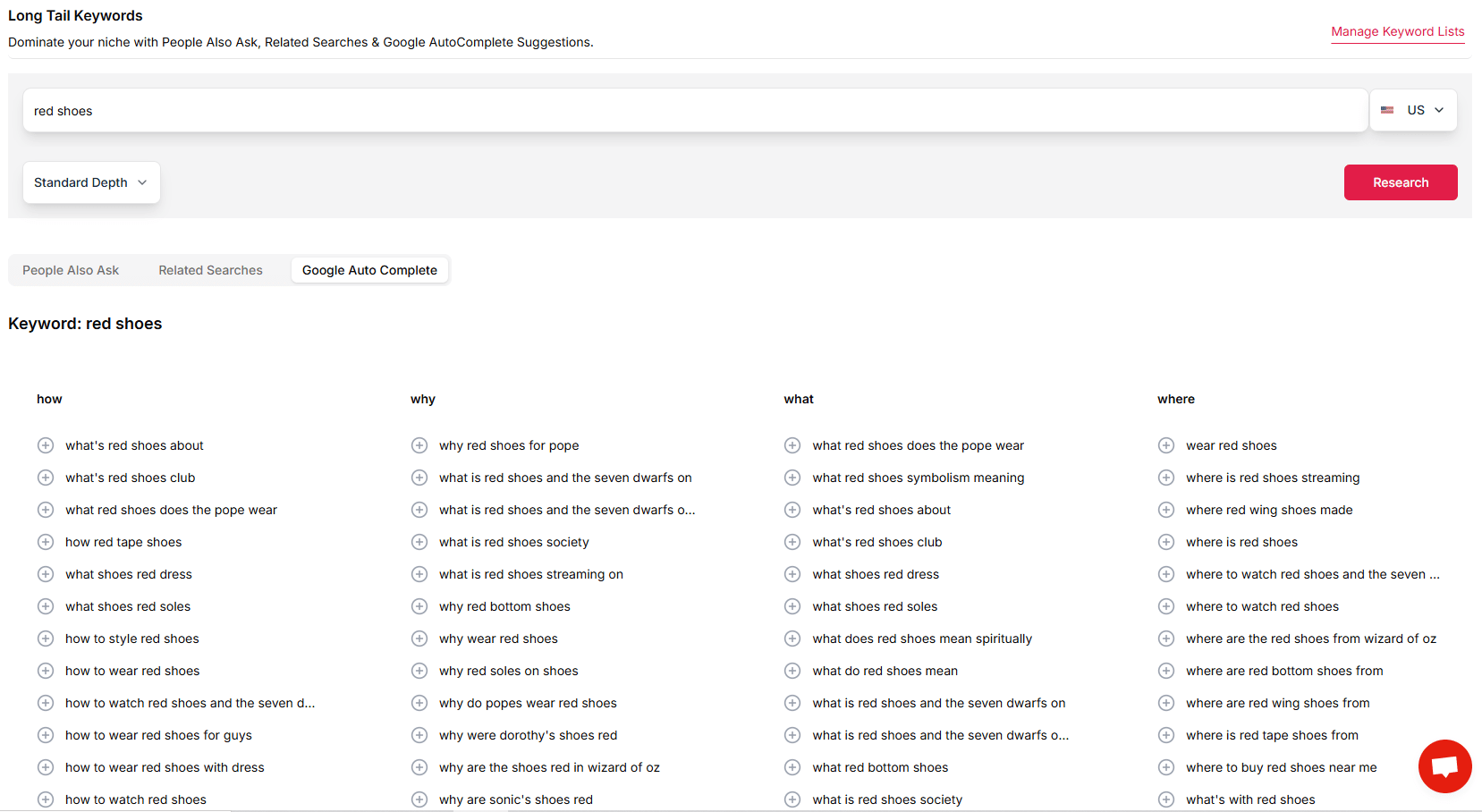
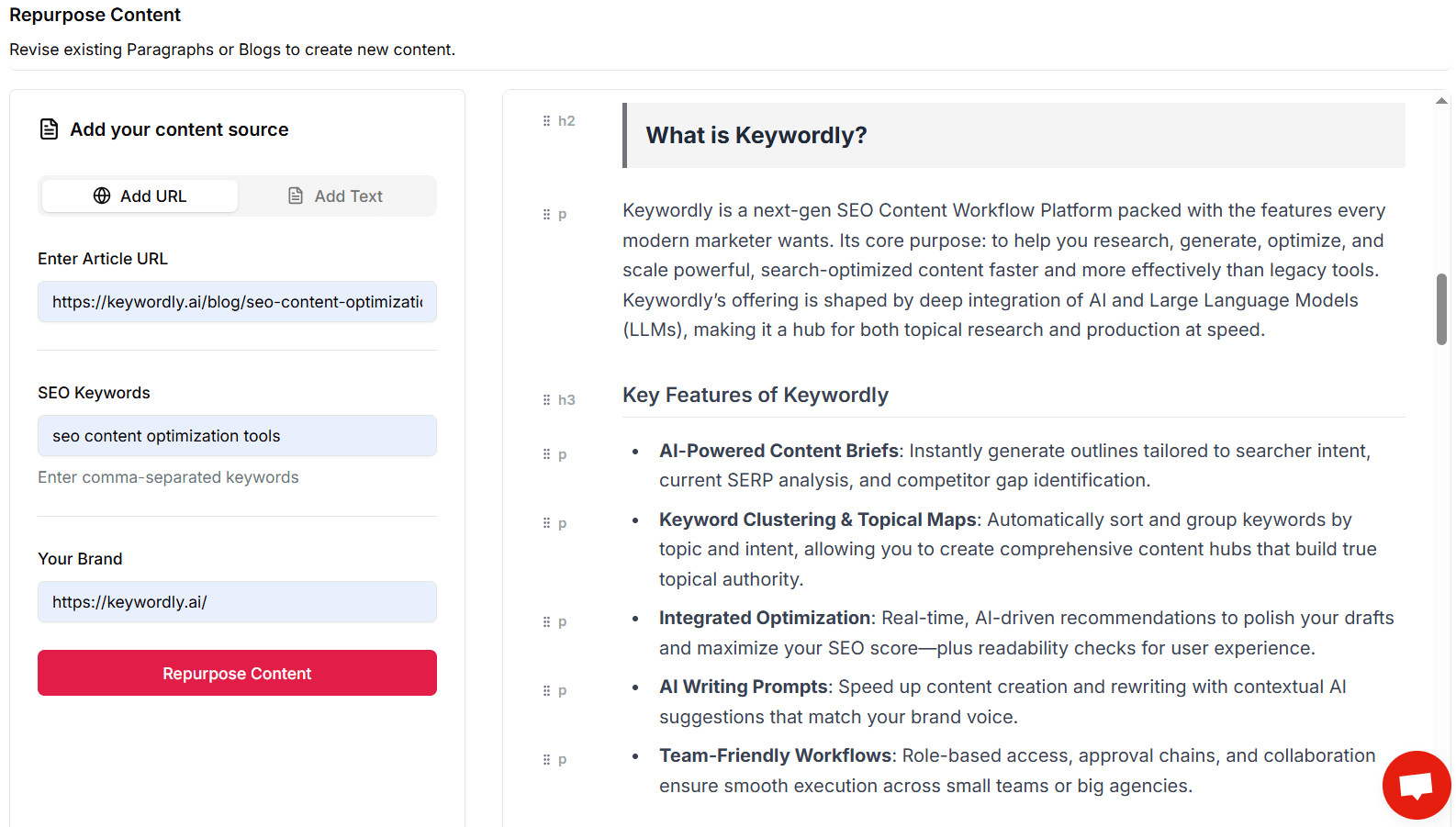
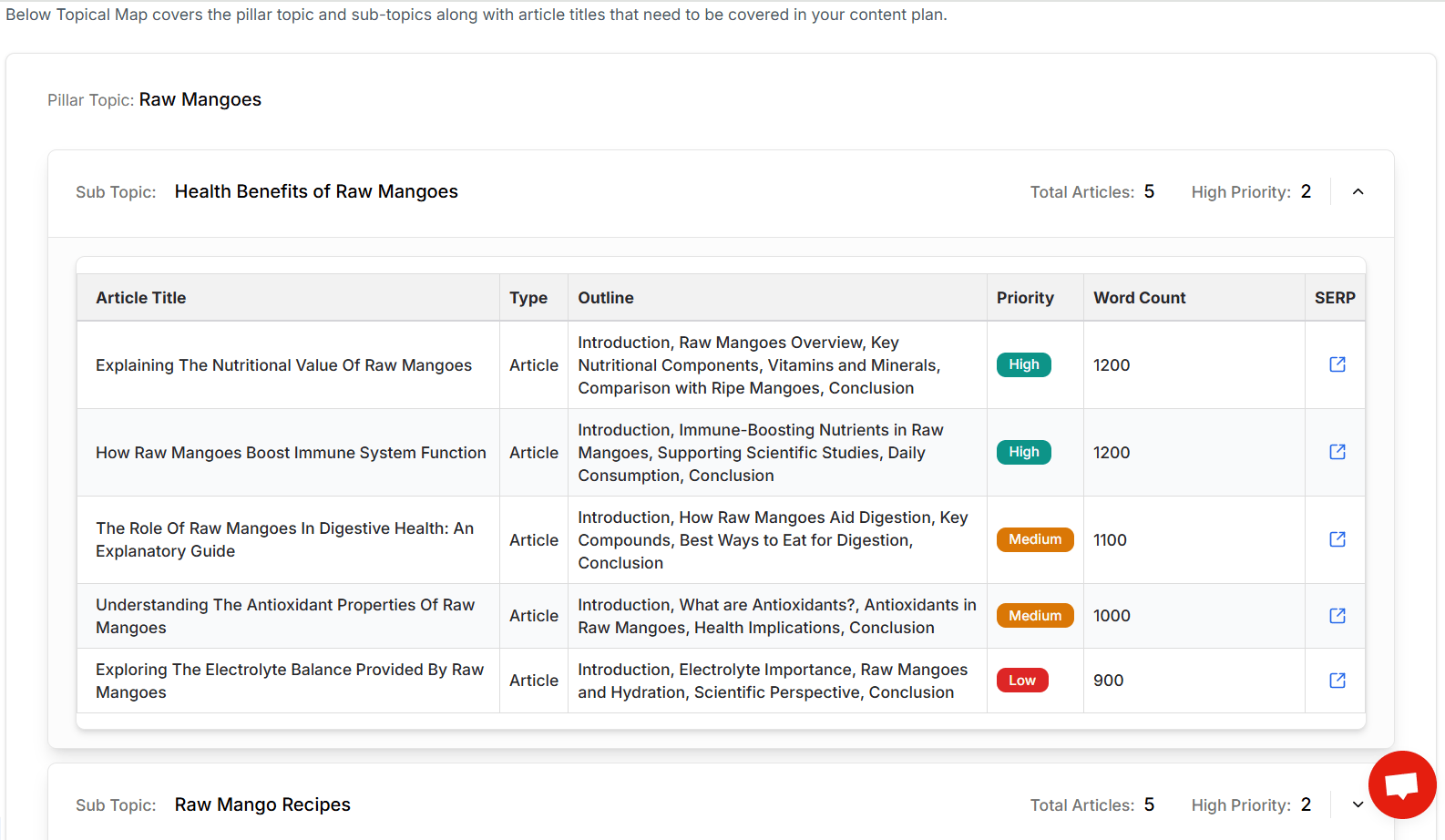
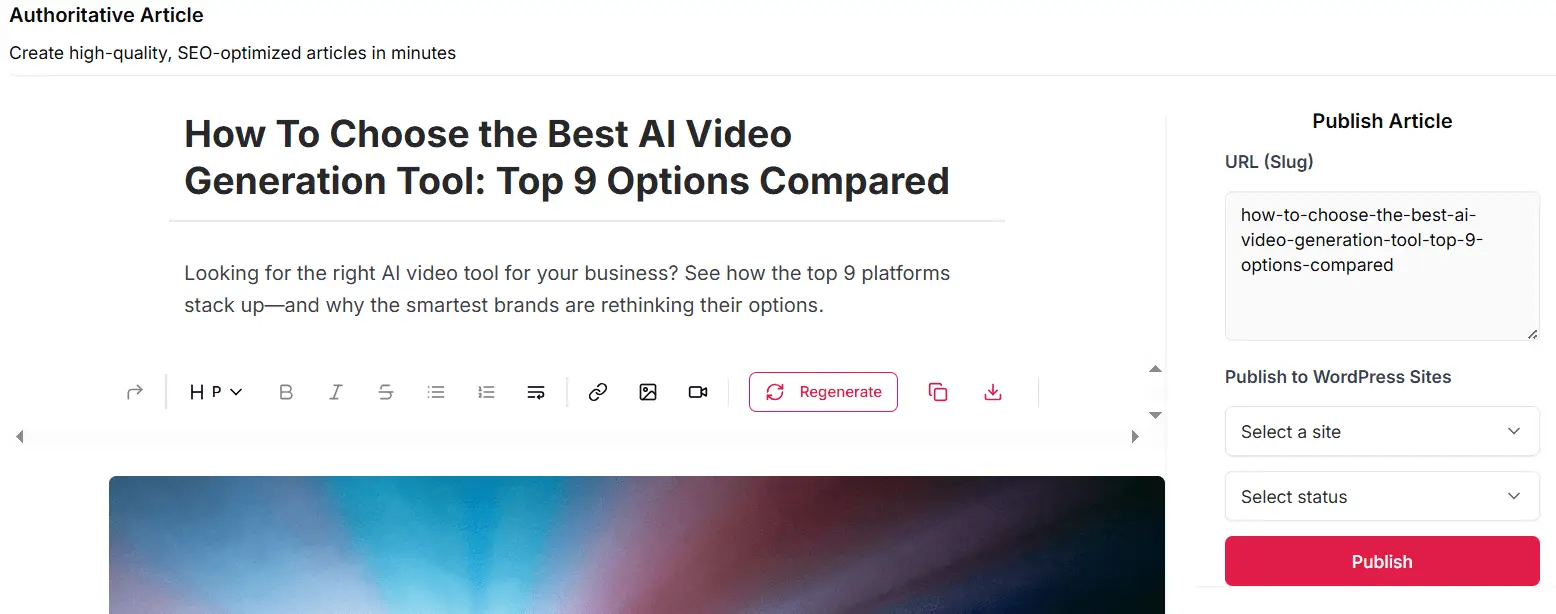
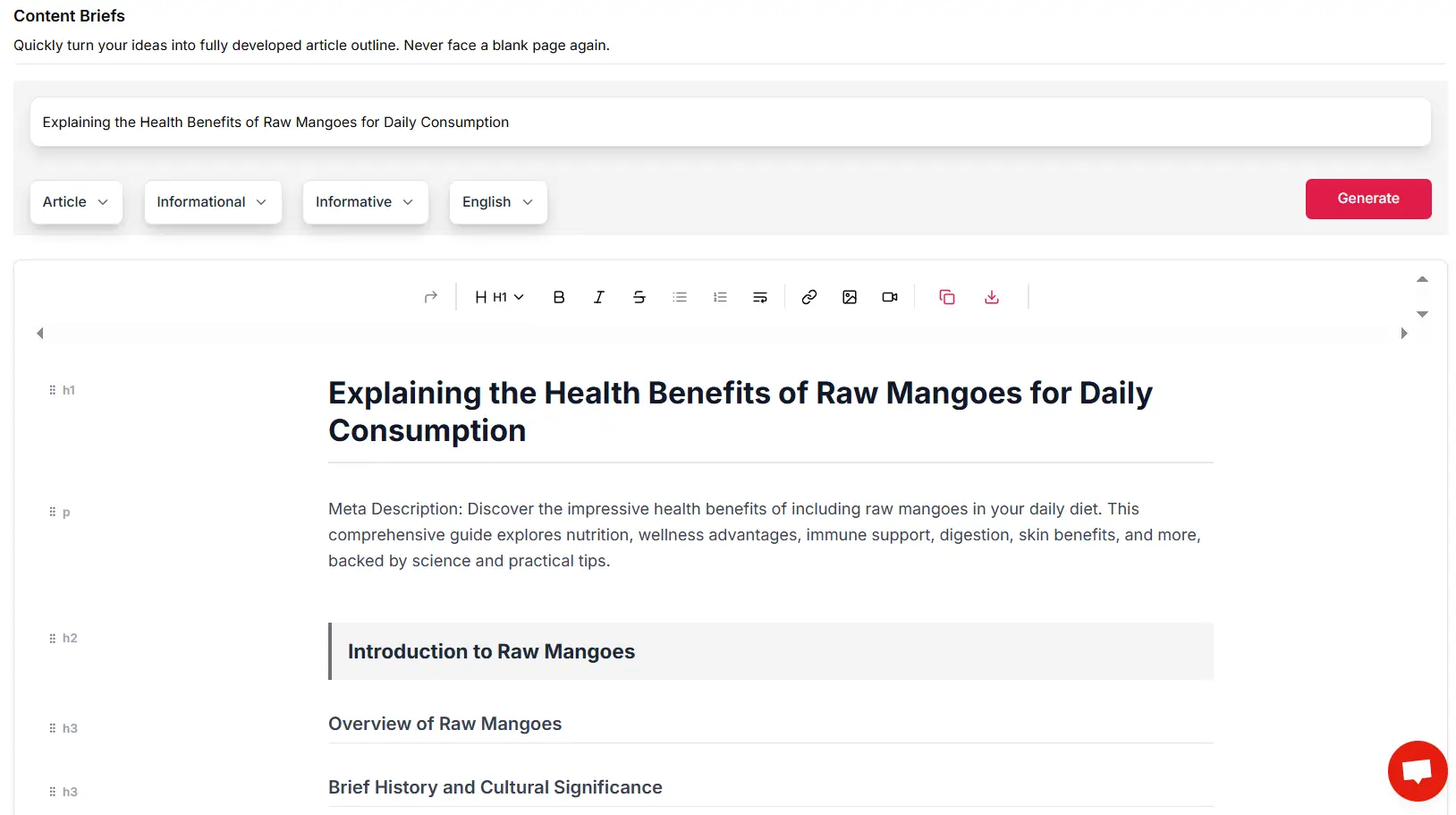
- Keyword Research & Clustering – Beyond simply identifying target keywords, clustering groups related terms together to help you build topical authority. Tools like Keywordly.ai shine here by generating semantic keyword maps that guide entire content strategies.
- Content Briefs & Outlines – High-quality blogs are built on structured outlines. Editors like Frase.io and Keywordly.ai allow you to auto-generate briefs that ensure consistency and reduce miscommunication between strategists and writers.
- Competitor Analysis & Gap Insights – An effective editor compares your draft against top-ranking pages, highlighting missing keywords, topics, and content depth. This feature helps bridge the gap between what you’ve written and what Google already rewards.
- Metadata & SERP Preview – Metadata can make or break click-through rates. Editors like Yoast SEO provide previews of how your title and description will appear in search results, letting you refine them for maximum impact.
- Internal & External Link Management – Internal linking boosts SEO and keeps readers engaged, while external linking to authoritative sites builds trust. Some editors suggest linking opportunities automatically.
- Rich Media Optimization – Search engines value multimedia. Editors that recommend adding images, video, or schema markup help improve both user experience and rankings. Tools like Clearscope encourage alt text optimization for images.
- Content Repurposing & Refresh – Great SEO editors also assist in repurposing existing content into new formats (like turning blogs into social posts or infographics) and refreshing old content with updated keywords and data. This ensures your content library stays evergreen and continues driving traffic.
Together, these features form the backbone of a strong SEO content editor. Whether you’re writing solo or managing a team of contributors, focusing on these areas ensures every piece of content is optimized for visibility, engagement, and long-term growth.
How to Match the Right Tool to Your Blog’s Needs
Not every SEO content editor is built for the same audience. The right choice depends heavily on your blogging style, growth stage, and overall strategy. Here’s a more detailed breakdown and where Keywordly.ai fits best:
- Solo Bloggers & Beginners
Ease of use and affordability matter most when starting out. While Yoast SEO provides basic WordPress optimization, Keywordly.ai goes further with built-in keyword clustering, semantic optimization, and simple workflows. Beginners benefit from advanced SEO insights without a steep learning curve. - Agencies & Multi-Author Blogs
When multiple writers collaborate, workflow and consistency are essential. StoryChief is good, but Keywordly.ai also suits agencies thanks to its topical mapping, content briefs, and export-ready drafts that keep teams aligned. Its AI-driven clustering ensures every writer works within the same topical strategy. - Niche Bloggers & Authority Builders
For those aiming to dominate a niche, Keywordly.ai stands out. Its semantic keyword clustering and topical authority features are designed for building content hubs that rank collectively. Unlike editors that only optimize a single article, Keywordly.ai helps create interlinked strategies that boost authority across an entire niche. - Content-Heavy Publishers & Enterprises
Large publishers often turn to Clearscope or Surfer SEO for data-heavy optimization. However, Keywordly.ai offers a more cost-effective alternative with similar clustering and optimization features—making it scalable for growing publishers without breaking budgets. - Budget-Conscious Marketers
Keywordly.ai is one of the most affordable yet feature-rich editors. It combines clustering, briefs, and semantic optimization at a fraction of the cost of Clearscope or Surfer. This makes it especially attractive for bloggers and marketers who want premium results without premium pricing.
As MotoCMS points out, the right tool isn’t just about features today—it’s about growth tomorrow. Keywordly.ai checks both boxes: powerful enough for scaling, yet intuitive enough for daily use, making it one of the most versatile SEO content editors available.
Checklist Before Choosing an SEO Content Editor
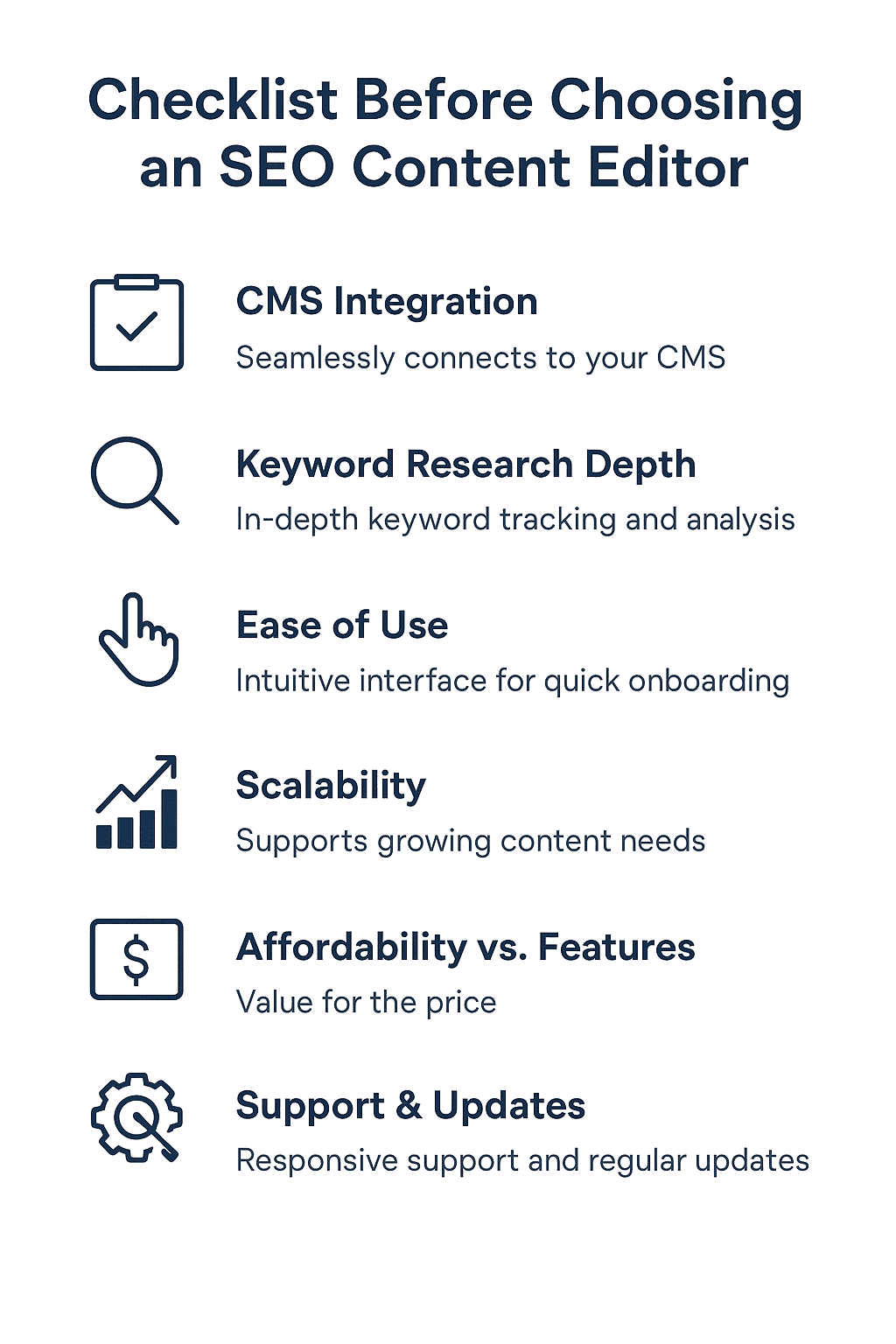
When narrowing down your options, it’s important to run through a quick checklist. This will help you identify not just any tool, but the one most suited to your needs. If you’re considering Keywordly.ai, you’ll notice it ticks many of these boxes:
- CMS Integration: Does the editor integrate smoothly with your platform (WordPress, Google Docs, etc.)? Keywordly.ai offers flexible export options and WordPress compatibility.
- Keyword Research Depth: Does it provide clustering and topical mapping? Keywordly.ai excels here with advanced clustering and semantic optimization.
- Ease of Use: Is the learning curve manageable for both beginners and pros? Keywordly.ai has an intuitive interface built for quick adoption.
- Scalability: Will it grow with your blog? Keywordly.ai is designed for solo bloggers and agencies, making it future-proof.
- Affordability vs. Features: Does it strike the right balance? Keywordly.ai positions itself as a cost-effective alternative to high-priced enterprise editors.
- Support & Updates: Is there responsive customer support and ongoing product development? Keywordly.ai has been expanding its feature set rapidly.
In short, if you want a tool that balances AI-powered SEO insights, affordability, and usability, Keywordly.ai is a strong candidate to put at the top of your list.
Pro Tips for Maximizing Your SEO Content Editor
- Balance AI with human editing – don’t lose brand voice.
- Update old posts regularly using editor insights.
- Use content scoring as a guide, not a rulebook.
- Combine with analytics tools for a full SEO strategy.
Conclusion
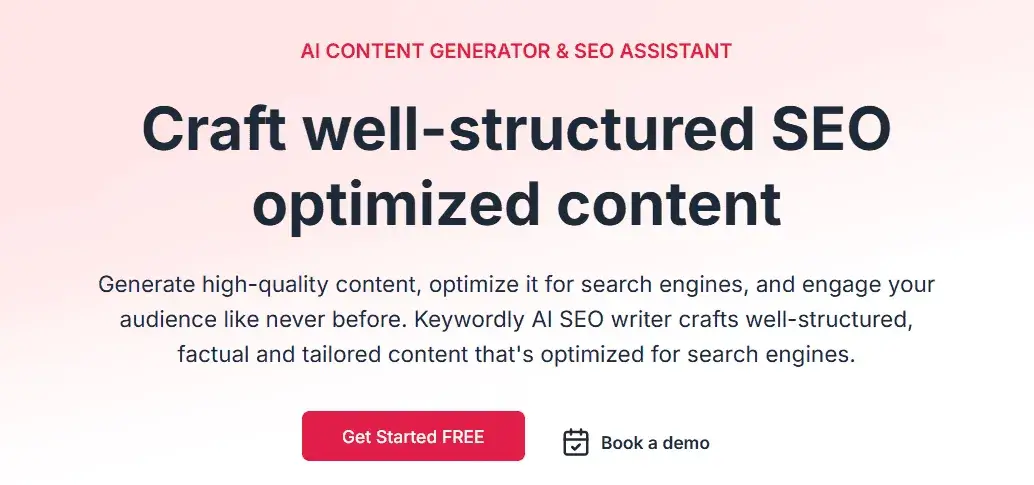
The right SEO content editor depends on your blog’s size, goals, and workflow. Keywordly.ai offers a balance of AI and SEO content workflow platform with simplicity.
Want to sharpen your SEO writing further? Check out our guide: AI Content Writing: 5 Proven Steps to Create High-Quality Content. and How to Create an SEO Content Brief: Step-by-Step Guide (with Free Template)
FAQs
What is an SEO content editor?
An SEO content editor is a tool that helps optimize your writing for search engines by providing keyword suggestions, readability scores, competitor insights, and metadata guidance.
Do I really need an SEO content editor if I already use a keyword research tool?
Yes. Keyword tools help you find search terms, but an SEO content editor ensures your article is structured, optimized, and ready to rank by aligning with SEO best practices.
Which SEO content editor is best for beginners?
For beginners, tools like Keywordly.ai and Yoast SEO are great starting points. They’re user-friendly and provide actionable recommendations without overwhelming you.
